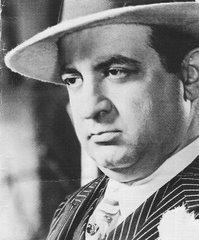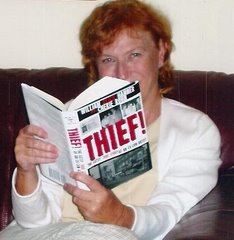803-366-5440
strategicmediabooks@gmail.com
www.strategicmediabooks.com
Crime Beat Radio Show
www.artistfirst.com
crimebeat123@yahoo.com
Crime Beat Radio Show’s Upcoming September 29 program to feature Nina Burleigh and her best-selling book on the sensational Amanda knox murder trial
September 2011—After a high profile trial in December 2009 in Perugia, Italy, American Amanda Knox was sentenced to 26 years in jail for the brutal murder of British student Meredith Kercher. Since then, Knox’s lawyers have appealed Knox’s conviction and her case has attracted international attention. Now Amanda Knox is just a few weeks, perhaps days, from learning if her conviction will be overturned.www.artistfirst.com
crimebeat123@yahoo.com
Crime Beat Radio Show’s Upcoming September 29 program to feature Nina Burleigh and her best-selling book on the sensational Amanda knox murder trial
Crime Beat: Issues, Controversies and Personalities from the Darkside on the Artist First World Radio Network is pleased to announce that on September 29 at 8 pm. EST, noted journalist Nina Burleigh will be a special guest. In the timely program, Ms. Burleigh will discuss her best-selling book, The Fatal Gift of Beauty: The Italian Trials of Amanda Knox, which provides a close up and fascinating look at the Amanda Knox murder conviction and appeal.
In reviewing The Fatal Gift of Beauty, Publishers Weekly gave it a starred review and wrote: "[In] this powerful example of narrative non-fiction. Burleigh, who parses how the Knox trial was perhaps tainted, still presents a fair and unbiased portrait of a girl adrift in a foreign legal system and a culture rife with preconceptions about young American women." The Kirkus Reviews praised Fatal Beauty as a “standout among recent true-crime titles.
Ms. Burleigh is also an award-winning author of four books and has been published in the New Yorker, Time, New York and People, among many other publications.
Crime Beat is a weekly hour-long radio program and airs every Thursday from 9 and 10 EST. Beginning with the May 5 program the show moves to the 8pm-9pm EST time slot on the Artist First World radio Network. Crime Beat presents fascinating topics that bring listeners closer to the dynamic underbelly of the world of crime. Guests have included ex-mobsters, undercover law enforcement agents, sports officials, informants, prisoners, drug dealers and investigative journalists, who have provided insights and fresh information about the world’s most fascinating subject: crime.
Crime Beat is hosted by award-winning crime writer Ron Chepesiuk (www.ronchepesiuk.com) and broadcast journalist and freelance writer Willie Hryb.
"Your radio format is great,” write Mark Christopoulus of northern California.
“Crime Beat is over the top, gentlemen! The show is on late in the afternoon out here, and me and my buddies from work get a chance to listen to it over a beer at our favorite watering hole before heading home."
Ivo DeLorenzi of Thunder Bay, Canada, writes: "I love your show... you guys manage to get top-calibre guests every week ... fascinating and remarkable, all rolled into one".




